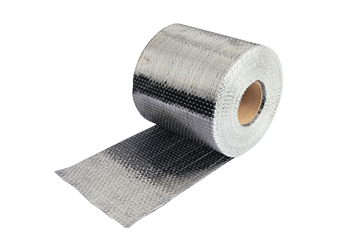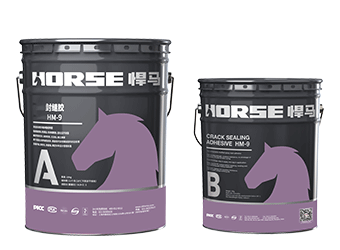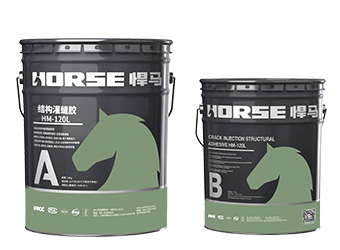Solutions
Horse Construction offers full range of structural strengthening materials with technical supports, documentation supports, products supports, project supports.
Structural crack analysis, judgment and treatment of concrete columns
Structural Crack Treatment Of Concrete Columns
Structural Crack Treatment Of Concrete Beams(1)
Structural Crack Treatment Of Concrete Beams(2)
Structural Crack Treatment Of Concrete Slabs
The different stress conditions of the column can cause different forms of cracks. The geometric characteristics of columns are similar to those of beams, but their stress situations are significantly different: columns mainly bear vertical pressure, and when the structure is subjected to load eccentricity, horizontal force, or uneven settlement, they also bear bending moments and shear forces.
When the main force on the structure is pressure, axial compression components and small eccentric compression components are prone to longitudinal compressive cracking of concrete in the vertical direction, which may cause damage to the concrete structure. Reinforcement treatment should be carried out as soon as possible. The compressive cracks caused by the bending of steel bars in the transition zone of variable cross-section columns, as well as the crushing cracks in the concrete at the column base caused by substandard construction quality, are also signs of structural danger and should be detected and reinforced in a timely manner.
The column is subjected to eccentric compression, and the cracks caused by bending moment will appear in the Lamian Noodles of the eccentric compression column, and the cracks will be perpendicular to the column, similar to the bending cracks. Under horizontal loads, large eccentric horizontal tensile cracks may occur in corner columns. Due to construction joints and concrete sinking, horizontal cracking along the perimeter of the steel hoop can also occur. Uneven settlement of the foundation causes the column to tilt, and bending cracks can also occur at the column corners and heads.
When the column is subjected to significant horizontal loads or forced displacements, diagonal cracks may also occur due to shear forces. This type of diagonal crack can cause damage to the concrete structure under repeated horizontal loads, and should be reinforced in a timely manner.
One or both sides of the column
Horizontal crack non penetrating section
Bending tensile cracks
What is the cause of the crack?
Eccentrically compressed components
Under the action of axial force and bending moment
Lower tensile cracking
What are the impacts?
Insecurity
Affects visibility
It basically does not affect the bearing capacity
Affects durability
How to deal with cracks?
Sealing cracks
Reinforcement treatment if necessary
On the side of the corner column along the perimeter of the column
Horizontal cracks along the perimeter of the column
Stress cracks caused by axial or minor eccentric tension
What is the cause of the crack?
Under horizontal load, one side of the column experiences tensile cracking across its entire cross-section
What are the impacts?
Insecurity
Affects visibility
It basically does not affect the bearing capacity
Affects durability
How to deal with cracks?
Sealing cracks
Reinforcement treatment if necessary
Joint on the side of the column
Cracks along the joint, concrete with texture differences
Construction joint cracks
What is the cause of the crack?
Cleaning and chiseling of the rubbing surface
Insufficient moisture
Improper construction pouring, vibration and maintenance
What are the impacts?
Insecurity
Affects visibility
It basically does not affect the bearing capacity
Affects durability
How to deal with cracks?
Covering cracks
Reinforcement treatment if necessary
Vertical cracks on the column side
Intermittent groups of short cracks, bulging and peeling off
Compression failure crack
What is the cause of the crack?
Concrete reaches strength under compression
Improper construction pouring, vibration and maintenance
What are the impacts?
Warning signs of crushing failure
Indicating insufficient column bearing capacity
How to deal with cracks?
Immediately stop using and uninstall
Timely detection and reinforcement treatment
Sides of variable cross-section columns
Vertical cracks in variable cross-section areas
Local cracks caused by poor construction
What is the cause of the crack?
Large slope of variable cross-section
Insufficient column hoop reinforcement
Bending of diagonal column steel bars
What are the impacts?
Affects local bearing capacity
Affects durability
How to deal with cracks?
Sealing cracks
Local reinforcement treatment
Diagonal crack towards one side area
Parallel cracks with short water and parallel reinforcement at oblique cracks
Diagonal cracks under shear force
What is the cause of the crack?
Insufficient reinforcement
Longitudinal bars undergo shear cracks along the steel bars under the action of shear force
What are the impacts?
Insufficient local shear resistance
Affects durability
How to deal with cracks?
Sealing cracks
Local reinforcement treatment
Column upper and lower areas
Diagonal cracks do not penetrate the cross-section
Diagonal cracks under shear force
What is the cause of the crack?
Insufficient coupling
Shear cracking caused by horizontal load or forced displacement
Insufficient shear bearing capacity
What are the impacts?
Affects durability
Affects local bearing capacity
Appearance impact
How to deal with cracks?
Sealing cracks
Local reinforcement treatment
You can find anything here you are in need of, have a trust trying on these products, you will find the big difference after that.

High strength, unidirectional carbon fiber wrap pre-saturated to form a carbon fiber reinforced polymer (CFRP) wrap used to strengthen structural concrete elements.

High strength crack sealing repairing adhesive for the fracture surface of concrete crack

Very strong penetration and low viscosity epoxy crack injection adhesive for repairing concrete crack